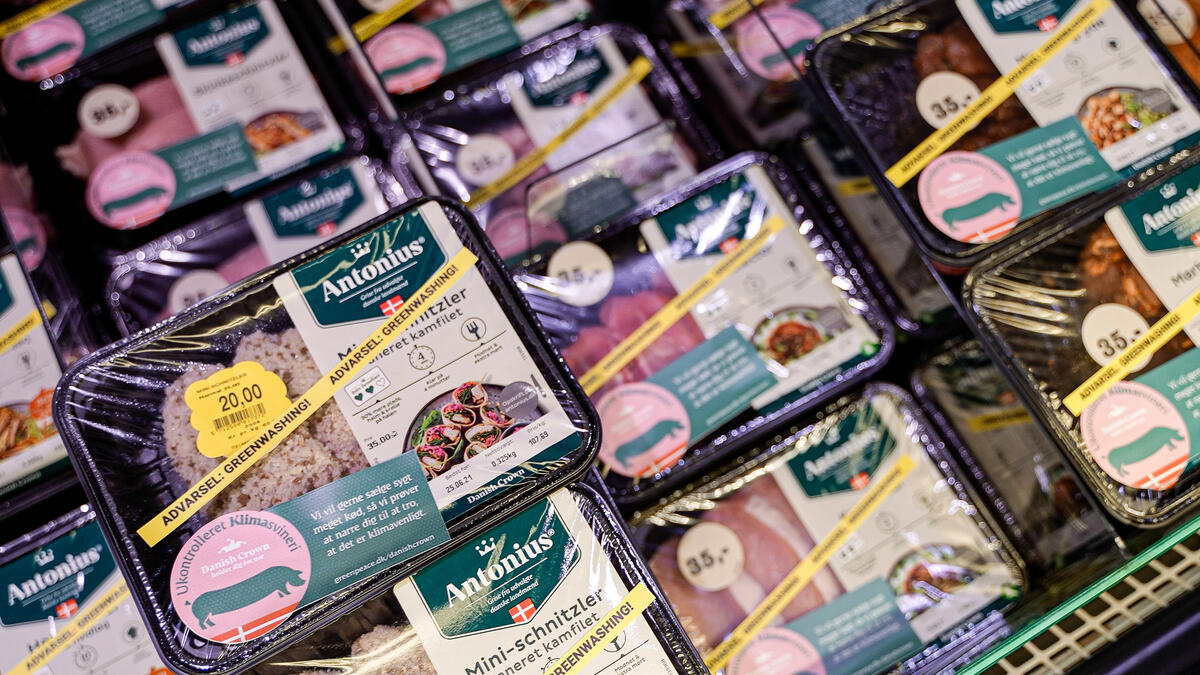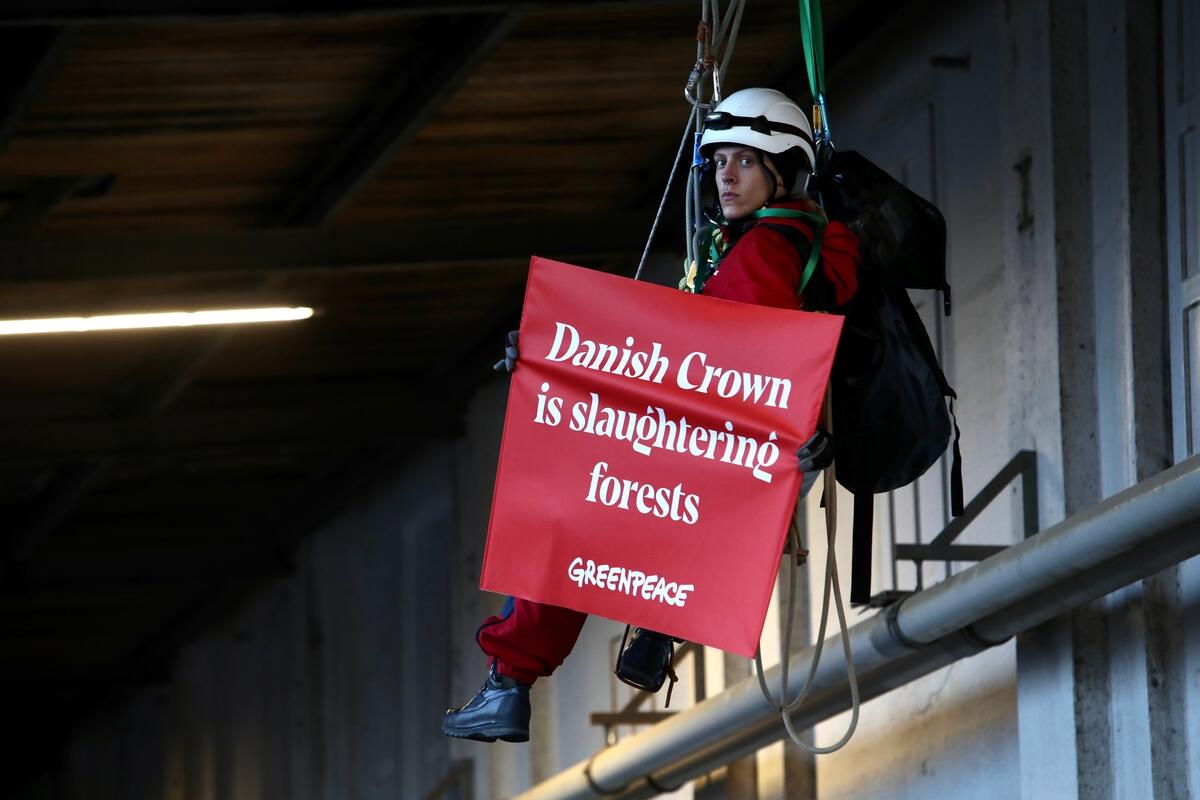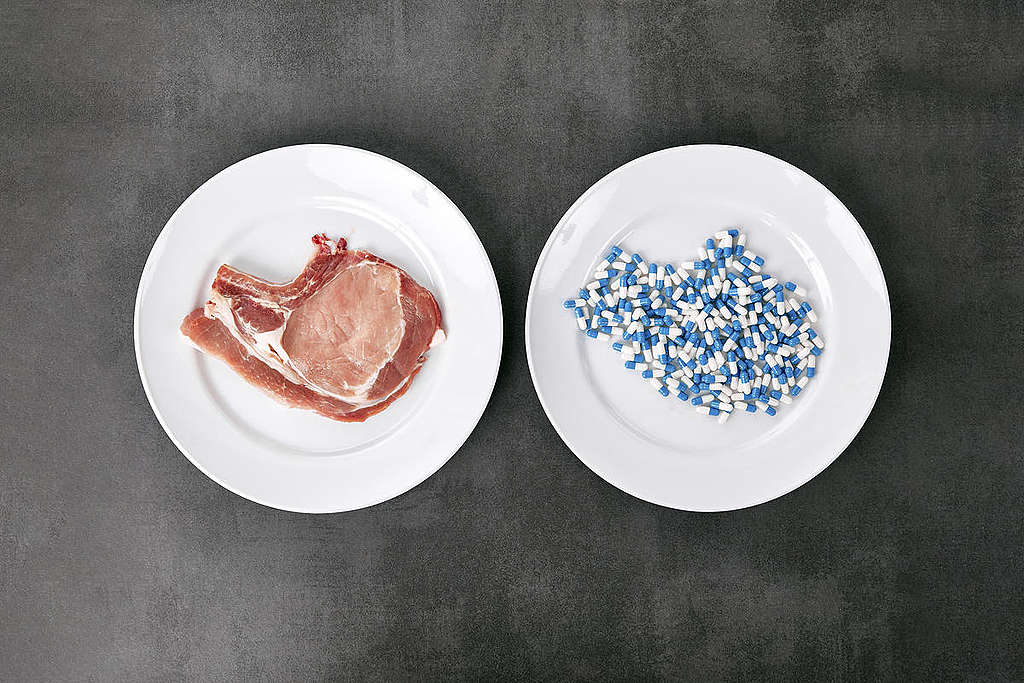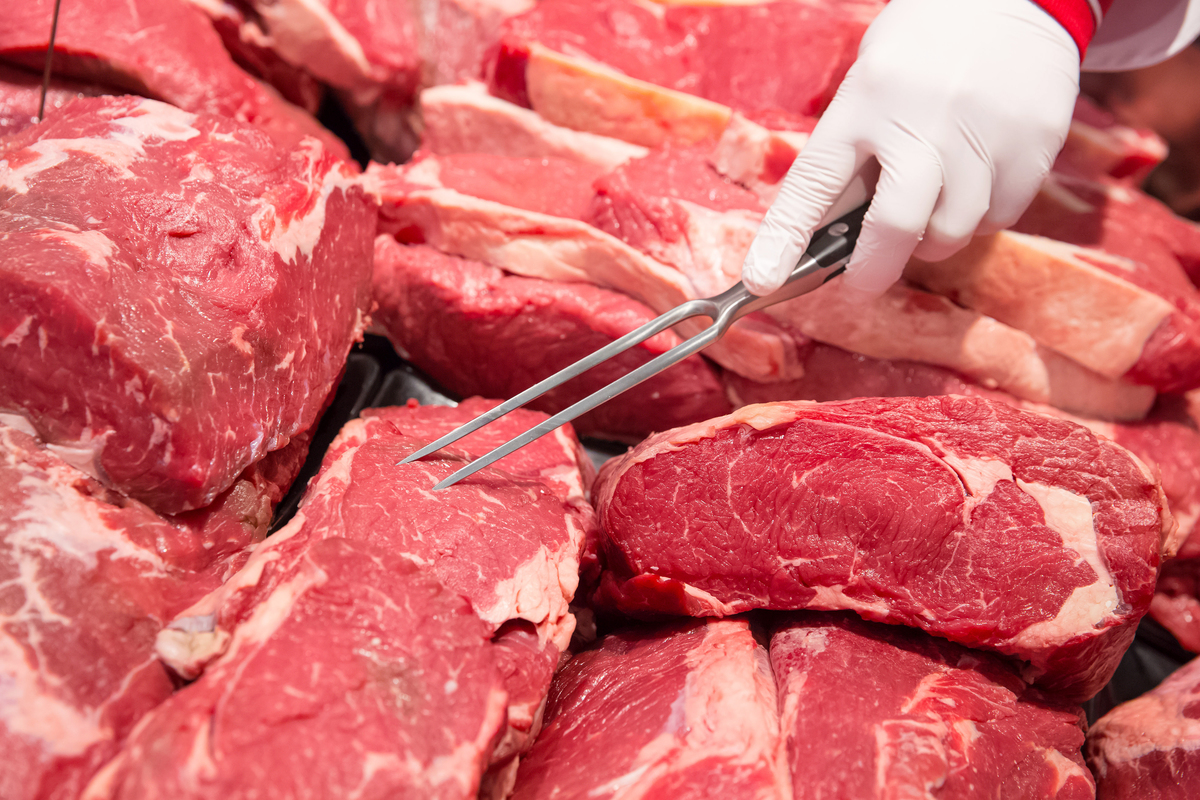Today is World Health Day and here's a fact: a diet rich in plant-based foods and with fewer animal source foods is both healthier for people, and kinder to the environment and the climate. Unsurprisingly, this fact is inconvenient to Big Meat and Dairy companies, whose profits depend on us continuing to consume their products. To protect their interests, they wield political influence to counter potential regulations and use marketing ingenuity to maintain consumers' trust.
Influencing science and the use of science more broadly is a central tactic to the food industry (alongside fossil fuels, tobacco, chemical, and pharmaceutical…). But for science to be seen as an ally of corporate profits, the scientific findings have to shed a positive light on the product (or at least, a neutral one).

We reviewed 3 strategies employed by Big Meat and Dairy to make sure that scientific findings line up with their profits:
1. Generating and cherry-picking research
The meat and dairy industry is prolific in generating research that will be beneficial for business. This is often done by research institutes or think tanks created by the industry itself or by providing funding for university research projects (funding that is often very welcome, given the chronic lack of public funding for university research). This latter strategy has the advantage of adding a prestigious university name to the study, giving it an air of neutrality and authority.
Even if Big Meat and Dairy's funding doesn't directly interfere with scientific research practices, these partnerships are often more likely to produce results 'useful' to a given industry, because they embed the industry's considerations within the research questions.
Scientific articles about the nutritional value of beverages such as soft drink, juices and milk funded entirely by the beverage industry were found to be four to eight times more likely to be favorable to the financial interests of the sponsors than those without industry funding. For example, several studies funded by the dairy industry which pointed out to the health benefits of chocolate milk, (either to recover from sport-related concussion or as a superior drink to recover from vigorous exercise) were later respectively retracted by the sponsored university or debunked after it was demonstrated that the methodology was flawed and designed in a way to produce positive results.
Another tactic of the meat and dairy industry is to publish or communicate cherry-picked scientific data that puts a positive light on their products. Taken in isolation, these facts are often true, but they fail to present the full picture and hide potential pitfalls. For example, Greenpeace Denmark called out the European's pig industry's campaign for misrepresenting their alleged small climate footprint emissions, by representing their emissions data per kilo of meat, instead of overall emissions, which was misleading as for example the industrial animal emissions in Spain – Europe's lead pork producer – had been increasing.

2. Casting doubts
This strategy involves attempting to discredit research that exposes the environmental and public health impacts of the production and consumption of meat and dairy products, often through reframing their findings as inconclusive and 'open for debate', despite widespread scientific consensus.
For example, the Dublin Declaration, a pro-meat manifesto authored by scientists reportedly with close ties to the meat industry, casts doubts about the findings of the 2019 Global Burden of Disease Risk Factors Report. Although the report confirmed earlier findings from the World Health Organization's cancer research body (IARC) about the association between overconsumption of red and processed meat and increased cancer risks, the Dublin Declaration questioned the metrics and data used to reach this conclusion. Dr Kurt Straif, former Head of the IARC, whose team concluded "with confidence" that processed meat is carcinogenic and red meat is "probably carcinogenic" told Unearthed that "efforts to obscure or downplay the cancer risk of meat products could have a deleterious effect on the public's awareness of such risks and may even harm the public's health".

3. Shifting the public debate away from scientific evidence
The industry also attempts to shift focus away from its negative impacts highlighting instead broader economic, cultural, or ethical elements of meat consumption. Some prominent industry lines include that eating meat (and being omnivore) is "natural", or that restricting meat consumption would encroach our freedom as individuals. Socio-economic arguments and technical barriers are being used as a reason not to change consumption patterns, for example bringing up concerns about local food security (although animal farming does play a role in global food insecurity) or simply pointing to a lack of alternatives (a tactic used by the French farmer union in 2017 when pressuring the European Commission to extend the license of toxic glyphosate-based pesticides).
This use and manipulation of science provide ammunition to political lobbyists acting on behalf of the industry. Unearthed's investigation on the Dublin Declaration which among other things questioned the association between cancer and red and processed meat found that the Declaration was used to lobby EU decision-makers against recommendations for reduced meat consumption as part of the EU's cancer strategy. Scientific papers regularly get cited in communications targeting EU decision-makers, without transparency on the credentials of the authors, their potential connections to industry or the independence of the journal that published them. These conflicts of interests get buried.

And this pays off: in the European Union for example, many politicians keep protecting the interests of the biggest Meat & Dairy companies at the expense of policies that would protect public health and the environment that we are part of and depend on. Whilst the European Commission initially attempted to create a "paradigm shift in the way we produce and consume food" with its Sustainable Food Systems Law, the file collapsed under the pressure of the farm industry and was shelved at the end of 2023. The file was the cornerstone of the Farm-to-Fork Strategy, a key output of the European Commission that has been furiously attacked by the industry.
Here is an example of how scientific facts played a part: this communication from livestock lobbyists to the European Commission about the strategy states scientific facts about the importance of meat through referring to a scientific paper to back up its argument. What the letter does not say though is that the paper was written by INRAE staff, a French institute infamous for its historical ties with the meat industry, and published in the journal Viandes & Produits Carnés, a french journal that lists members of the livestock industry as its main partners.
Beyond policymaking circles, these tactics are embedded in many aspects of the industry's public communications, often with the view to reassure consumers about their products. Just like greenwashing, such tactics are profoundly misleading, feeds into culture wars and harms the integrity of scientific research, the bedrock of any functioning society. Preventing it requires greater transparency over conflicts of interest, and increased public funding for research institutions to make sure that scientists are not pressured into accepting grants from the meat and dairy industries.
Do you think that you've spotted some of these strategies? Share it on social media with the hashtag #BigMeatTactics.
Sophie Nodzenski is a Food and Agriculture Campaigner at Greenpeace International.






